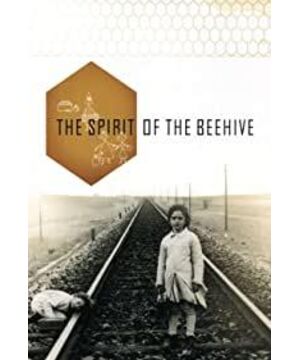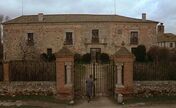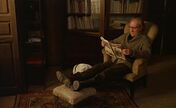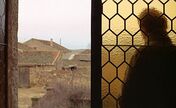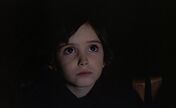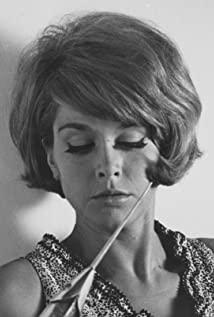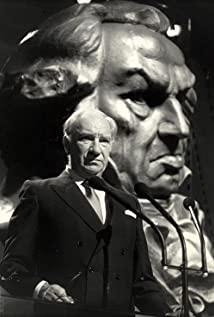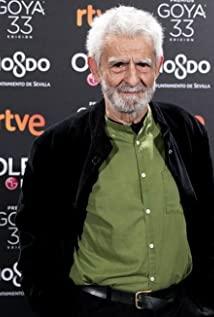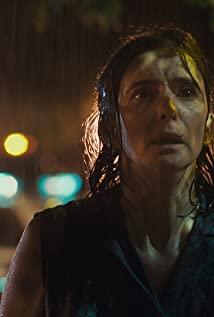of the eyes • The first things that Anna's eyes (in the film) project on - light and shadow
• Anna's big, curious eyes and the "eyes" that the teacher asked Anna to put on the mannequin (she was not yet Completely understand the meaning of eyes, although the teacher is not without effort; if it wasn't for her sister's reminder, she didn't even notice that the model lacks eyes, Anna has not realized the importance or speciality of eyes or other sense organs, her senses are still In an unawakened state; when the teacher announces "Don José can see now!", Anna starts to "see")
• Observation of bees/hives
• Father teaching daughter to recognize mushrooms That realization, and "seeing is believing" is just a kink in her consciousness and fate; there may be some implicit thinking about the movie, but it can only make sense in connection with other factors); Distant mountains for daughter (a mountain belonging to great-grandfather, "Mushroom Garden", mysterious and superficial, Anna and sister can only stare longingly; eyes - the futility and limitation of vision); father trampling on poisonous mushrooms (destroying life) ) details are important to Anna, helping her to establish and perfect the image of her father, giving her some important associations later on.
• Reflection in the water - Anna has been able to "see" what she has fantasized about
• Mother's letter to her lover says, " …seeing the ruins of the war all around...", this is where Anna hid and was finally found
• The subject of the
audio-visual dialogue
• The father listens to the radio (Fatherhood; The Outside World [BBC] )
•Mother listens to her father's voice behind her on the bed (Father is out of the picture, his indistinguishable shadow of his actions is left on the bedside; mother seems to be a little afraid of this man)
•A whisper between Anna and Isabel on the bedside, father's footsteps
• When the father was out, the sisters were playing on the bed, and the maid stopped her, she felt that the two sisters were too noisy (the sisters' playfulness is not too much, but we noticed the quiet, solemn and even a little suffocating atmosphere in the big house and the whole village )
•Father was disturbed by the sound of the movie coming from the village office and could not read it, so he simply went to the balcony to “listen” to the movie (he passed by the village office and saw the movie poster, and hesitated for a while; what he heard on the balcony was about the newly formed film The introduction of Frankenstein, the characters in the movie are curious about Frankenstein, and the father is curious about the movie)
• After the mother sends the letter, she rides past the village office. The line that came was "...I went to the roof to look for...", which was what she herself would experience in a short while.
• The mother's letter to her lover said, "...the news I heard about the outside world was vague and incomprehensible".
•Anna and her sister lie on the rails listening to the train (it should be regarded as a more important plot in this theme and even in the whole film, this is the first collision between "listening" and "seeing", causing Anna's fantasy world and real world The first collision of the two is also the beginning of the fusion of the two - at first, Anna did not realize what the sound she heard on the rails meant, and the sister knew, told her that the train was coming [Sister has always been a elf to Anna At this time, her words were really a prophecy to Anna's ears], Anna looked at the train really coming in bewilderment, unable to understand how the voice she heard became a living existence, but the difference between the two. The connection was finally established by Anna, which naturally shocked her, and the stunned Anna almost died; soon after, we saw how the inspired Anna learned to use the method of listening to the heartbeat to identify Does my sister die "real" or "fake", how to try to drive away the ghost by shutting the sound out of the window, and finally, how to realize her fantasy—calling her ghost)
• The soundtrack of the film creates a very Wonderful Atmosphere
Door - Window - Hive - Place/Environment - Home
•The two sisters play games at will between the door and the door, while the parents are more often confined to their separate spaces (except at the end of the film, the parents do not appear in one shot at the same time; Anna flips through the pictures, and their photos are always It's split [there's a photo of his father in his youth with a scholar famous for his criticism of Franco]; in a slightly exceptional shot, the father leaves his hat and forgets his hat, and the mother throws it at him from upstairs— —It is still split upstairs and downstairs, but this may be a foreshadowing of the reconciliation between the two at the end; in addition, loneliness and isolation also contribute to the writing habits of the parents)
• Throughout the film, the family does not In the same shot at a time, each is a separate world (in the breakfast scene, this separation creates a lot of drama)
• The honeycomb and the windows of the same shape should be the most obvious in the film (but Maybe not the simplest) a metaphor
. Anna's big house is enough in itself to be a pivotal character in the film (defeated party, old fashion, decline, oblivion, nation, tradition, ancestors, history...)
• Temporary movie theater - a contrast between the two orders in the village hall and the outside world (mother passes by the village hall unaware that a scene she will experience herself is being played in it soon - looking for traces of her daughter on the roof; father is attracted by the film , and finally chose to listen behind the honeycomb glass)
• The place where Anna was last found: on the vast open plain ("leftover from the war" mentioned by my mother in her lover's letter) behind the ruins (compare Alice's The Rabbit Hole, the Mirror World, Anna's fantasy world is too lack of shelter, how fragile and defenseless)
imitation themes ("Film imitates life or life imitates film")
• Anna summons ghosts
• Isabelle plays with cats, plays dead, and paints blood Upper lip
Anna imitates her father shaving and typing
Anna gives the military (ghost or frankenstein in her eyes) apples and treats them kindly
Anna listens to the heartbeat
death of her suspended sister - bad luck/nightmare theme
•The death of the little girl in Frankenstein (sister's horror theory has been kept in Anna's subconscious ever since)
• Poisonous mushroom (Anna smelled the unusual aroma of poisonous mushrooms) and father's warning; father stepped on poisonous mushrooms (father has been with Death is connected [a painting of St. Geron and a skull hangs in my father's study], which is eventually identified by Anna as the one who killed the soldier)
• Death of a soldier; soldier's corpse under the screen (corresponds to Anna's sister's theory) , this is the real unmistakable death)
•Isabel's pretending to be dead (the sister's "resurrection" caused great confusion in Anna's consciousness, the most natural result is that Anna's real world and fantasy world finally merged together; Anna went to look for the maid who also haunted like a ghost, but she was nowhere to be seen, but she was no longer surprised that since some things can appear for no reason [train, ghost], they can naturally disappear for no reason [Anna went out to find the maid— - that is another ghost she understood - the place where she "disappeared" was the place where she last summoned her ghost, day - night, fighting - fighting back]; finally, through the unforgettable surprise of her sister , when Anna watched her sister dance over the fire the next day, she was almost sure she was seeing a ghost too)
Black cat (typical symbol of bad luck) - Isabel tried to suffocate the cat and ended up with a broken finger (here There is a fairy tale-like image of an evil sister, notice that it all happened on Anna's bed)
• Anna sat typing under that oil painting with a skull head on it
• The movie plot that came out when her mother passed the village hall was a foreshadowing of Anna's fate
Fairytale-like themes such as evil sisters, rival sisters, eccentric stern fathers, and maids colluding with villains
• Isabelle's mischievous interpretation of the film first caused a change in Anna's feelings and consciousness; a series of mischiefs (methods of summoning ghosts) , pretending to be dead); cat abuse on Anna's bed - ultimately bad luck for Anna
• Sisters guess mushrooms
• Father doubles as ghost/monster (from Frankenstein's prologue to a cut of the masked father figure, and footsteps); the sisters’ fear and being identified by Anna as the one who killed the soldier/ghost; the painting with the skull in the father’s study (the sisters have a picture of an angel on their bedside)
•The theme of the maid train that disappears when needed
(I think this also contains the director's thoughts on the film)
•The train sent by the mother is almost a stand-in for the famous train of the Lumière brothers (in the steam looming) mother - enigmatic character)
• Ana's reaction to the real train is reminiscent of the audience's reaction to the train of the Lumière brothers - very interesting contrast: Anna - to the real train the train - not moving at all, while the audience - facing the on-screen train - are said to be scared away; the former treats the real as fake (perhaps the pattern of all children), the latter treats the fake as fake Take it for real
• The ghost summoned by Anna is sent by train
• The tool for emotional connection between mother and lover
• The connection between the town and the outside world
-------------------- ----------------
Anna's fantasy world is not the world of egg-shaped March rabbits, fake turtles, baby pigs, but ugly and mediocre Frankensteins, restless hives, poisonous mushrooms, Communist fighters, and maybe even the specter of a dictator who is everywhere.
Pitiful.
View more about The Spirit of the Beehive reviews


